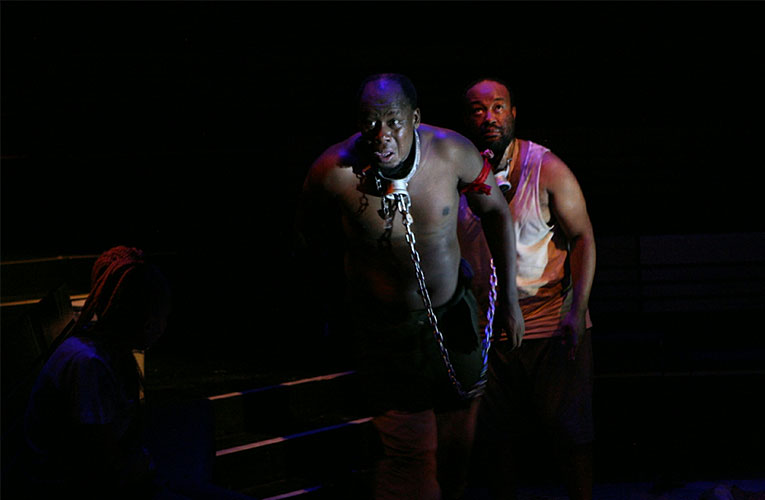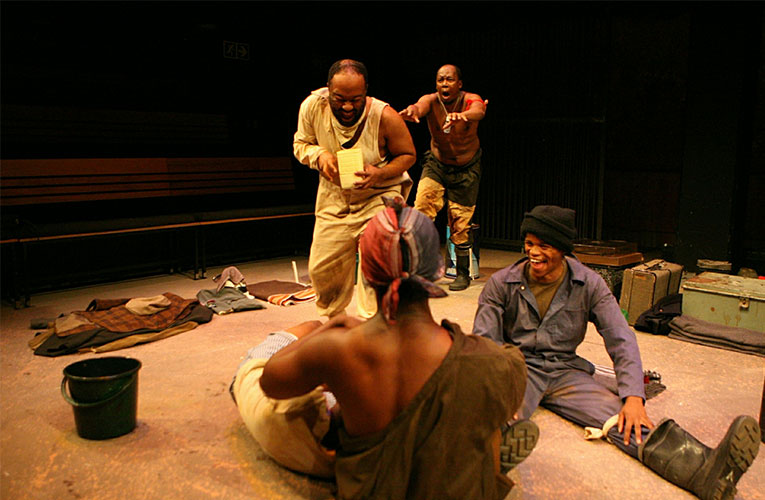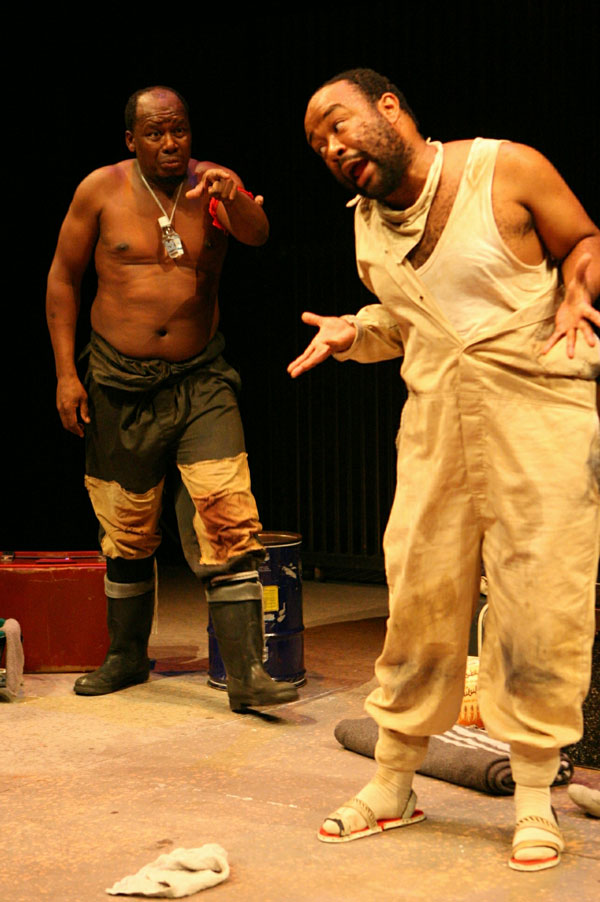Down memory lane of Protest Theatre: Egoli
By Edward Tsumele
The issue of migrant labour has always been part of the history of South African mining, especially with the discovery of gold, diamonds and other minerals in the 19th century. Men were lured to leave their rural homes and come to the city to dig gold with promises of fortunes made to them by the recruiters for the mining bosses. And unfortunately promises of making fortunes by working in the mines just became untruths that eventually revealed themselves sooner than later to many of the migrant workers. The working conditions were harsh, wages were low and the living conditions of the migrant workers left a lot to be desired.

It is these harsh working conditions of African migrant workers that cultivated the curiosity of the late playwright Matsemela Manaka to pen a play that became one of the most critically acclaimed plays within the genre of Protest Theatre that defined the history of theatre making during apartheid South Africa, and was mainly championed by the Market Theatre.
Manaka wrote Egoli to tell the story of a toiling migrant mine workers in Johannesburg, and the play has since became a classic. The Market Theatre with arrangements made with Dalro restaged this production in 2016, and just like when it was first staged in the 80s, the audiences received the play warmly.
And this time around Egoli was directed by Phala Oekeditse Phala, who was mentored by Makhaola Siyanda Ndebele and the production ran from January 13 to January 31 in 2016 at the Market Theatre.
In 2016 the iconic Market Theatre marked its 40th anniversary, and as part of the celebrations some of its most socially relevant production were revived to entertain and challenge a new audience.The first play being restaged to mark the theatre’s achievement and highlight its role in shaping social commentary was Egoli.

The Market Theatre was founded by theatre thespians Mannie Manim and Simon Barney, who were disturbed by the absence of a theatre that represented the voice of the majority or reflected what was happening in the skewed society of that era. These visionaries joined forces and built the Market Theatre, providing exactly the sort of space where 23-year-old Manaka was encouraged toexercise his artistry and pen Egoli.
His play returned on the stages of the Market Theatre for a limited season to celebrates the legends that shaped South Africa’s theatre movement and influenced the discourse in this country.
Egoli is set in this very unequal citywhere the gains of capitalism have not improved the lives of those who laboured to build it. The hands that built the beautiful city of gold struggledwith poverty, racial inequalities, class struggles, emasculation of the black man and the effect thatmen migrating away from their families had onthe women left behind to care for their families alone. For many, little has changed today.

Egoli was first published by Ravan Press in 1980 and was produced by the Soyikwa Africa Theatre, part of the Creative Youth Association founded in Soweto by students in 1976. Soyikwa Theatre believed in a communal approach to plays, so the final version of Egoli was a collaboration betweenthe writer and his two original actors, John Moalusi Ledwaba and Hamilton Mahonga Silwane.
The play presents the lives of migrant workers through scenes that range from realistic everyday experiences to dream sequences, mimed working scenes and flashbacks. It is written in a style that contains lucid physical imagery. The performance relies on the actors’ skills to expose the humiliation, suffering and abuse that blacks faced in apartheid South Africa, juxtaposed by the characters’ fiery passion for survival and liberation. Egoli was hailed as one of the plays that mostintensely used a powerful mastery of theatrical language to illustrate the conditions suffered by black South Africans.
It also highlights how the deficiency in education and skills imposed by apartheidfed a culture of lethargy towards seeking a higher consciousness, and in turnfed the discourse of self-destruction. Manaka wrote Egoli as a stirringattempt to bring some light to black South Africans, compelling them to question and change their destiny.
Credits for Egoli (2016)
Playwright Matsemela Manaka
Director Incubatee Phala Ookeditse Phala
Mentor Makhaola Siyanda Ndebele
Lighting Design Nomvula Molepo
Set &Costume Design Onthatile Matshidiso
Stage Manager Lebeisa Molapo
Cast:
Hamilton Dlamini
Lebohang Motaung
Alfred Motlhapi
Billy Langa
Faith Busika
Katlego Letsholonyana
Mohlatsi Mokgonyana
DAC Incubator Interns:
Production Manager Intern Lesego Chabedi
Lighting Design Intern Ali Madiga
Costume Design Intern Busisiwe Zama Mchunu
Set Design Intern Nthabiseng Makone
Stage Manager Intern Disney Nonyane
Season: 13 – 31 January 2016
Opening Night Friday 15 January 2016
Venue: The Laager Theatre
CITYLIFE/ ARTS Disclaimer: This article only refers to the 2016 production of Egoli and no current show is on at the moment, and we are only publishing this article in the context of Heritage Month and the Protest Theatre legacy championed mainly by the Market Theatre during the dark years of the struggle for freedom.










